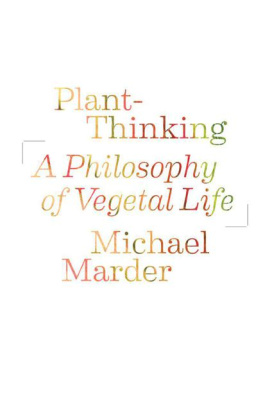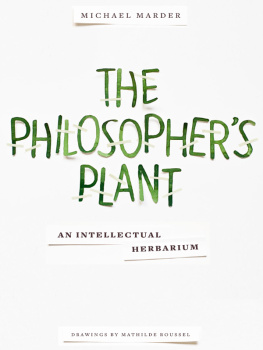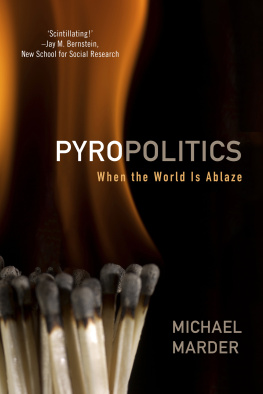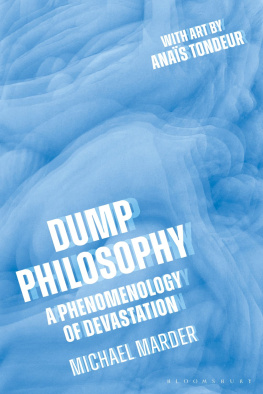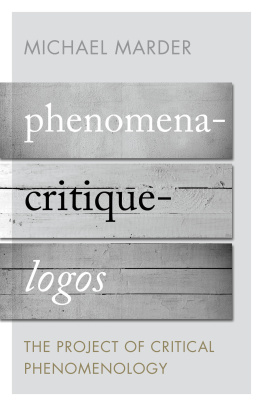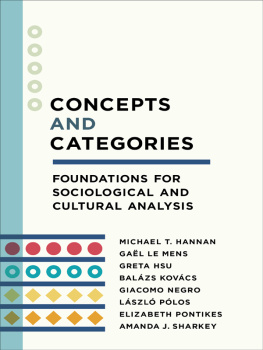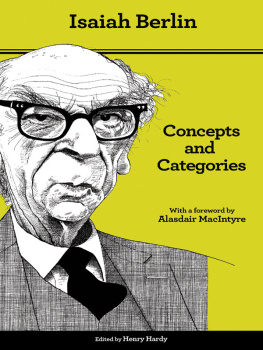Michael Marder - Political Categories: Thinking Beyond Concepts
Here you can read online Michael Marder - Political Categories: Thinking Beyond Concepts full text of the book (entire story) in english for free. Download pdf and epub, get meaning, cover and reviews about this ebook. year: 2019, publisher: ColumbiaUP, genre: Romance novel. Description of the work, (preface) as well as reviews are available. Best literature library LitArk.com created for fans of good reading and offers a wide selection of genres:
Romance novel
Science fiction
Adventure
Detective
Science
History
Home and family
Prose
Art
Politics
Computer
Non-fiction
Religion
Business
Children
Humor
Choose a favorite category and find really read worthwhile books. Enjoy immersion in the world of imagination, feel the emotions of the characters or learn something new for yourself, make an fascinating discovery.

- Book:Political Categories: Thinking Beyond Concepts
- Author:
- Publisher:ColumbiaUP
- Genre:
- Year:2019
- Rating:4 / 5
- Favourites:Add to favourites
- Your mark:
- 80
- 1
- 2
- 3
- 4
- 5
Political Categories: Thinking Beyond Concepts: summary, description and annotation
We offer to read an annotation, description, summary or preface (depends on what the author of the book "Political Categories: Thinking Beyond Concepts" wrote himself). If you haven't found the necessary information about the book — write in the comments, we will try to find it.
Political Categories: Thinking Beyond Concepts — read online for free the complete book (whole text) full work
Below is the text of the book, divided by pages. System saving the place of the last page read, allows you to conveniently read the book "Political Categories: Thinking Beyond Concepts" online for free, without having to search again every time where you left off. Put a bookmark, and you can go to the page where you finished reading at any time.
Font size:
Interval:
Bookmark:
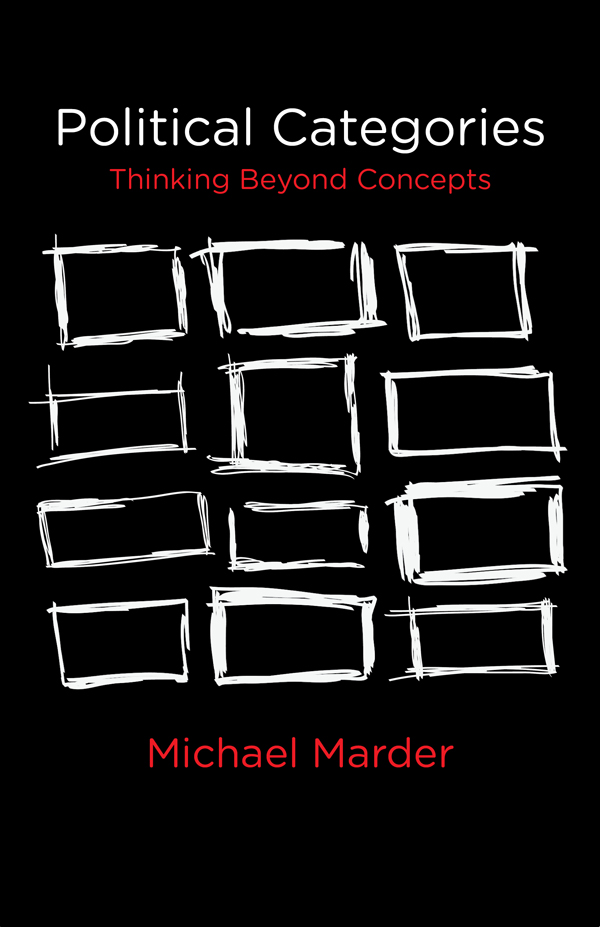
POLITICAL CATEGORIES
POLITICAL CATEGORIES
THINKING BEYOND CONCEPTS
MICHAEL MARDER
COLUMBIA UNIVERSITY PRESS
New York
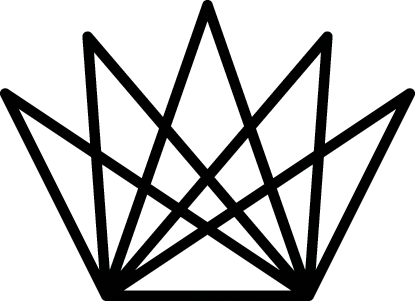
Columbia University Press
Publishers Since 1893
New YorkChichester, West Sussex
cup.columbia.edu
Copyright 2019 Columbia University Press
All rights reserved
E-ISBN 978-0-231-54798-7
Library of Congress Cataloging-in-Publication Data
Names: Marder, Michael, 1980 author.
Title: Political categories : thinking beyond concepts / Michael Marder.
Description: New York : Columbia University Press, [2018] | Includes bibliographical references and index.
Identifiers: LCCN 2018025465 | ISBN 9780231188685 (cloth : alk. paper) | ISBN 9780231188692 (pbk. : alk. paper)
Subjects: LCSH: Political sciencePhilosophy. | Ideology.
Classification: LCC JA71 .M268 2018 | DDC 320.01dc23
LC record available at https://lccn.loc.gov/2018025465
A Columbia University Press E-book.
CUP would be pleased to hear about your reading experience with this e-book at .
Cover design: Milenda Nan Ok Lee
Cover image: sumkinn copyright istockphoto
For Eli Frederico. Audere aude!

CONTENTS
A ll thinking bears the stamp of the unique time when and the place where it happens. Political philosophy is not an exception to this rule; perhaps, it is still more susceptible to the vicissitudes of its epoch than other branches of the discipline. Either immortalizing the transitory institutional arrangements they witness around themselves or formulating scathing critiques of the status quo and envisioning a better (in some cases, the ideal) world, political philosophers rarely stay indifferent to the politics they are contemporary with. Even when they are thoroughly convinced that their conclusions are universally and ahistorically valid.
Though the idea of this book had been ripening for a while, I started writing Political Categories on January 20, 2017, the day Donald Trump was inaugurated president of the United States. A contribution to the general field of political methodology, the study you are about to read is equally an intervention addressing the ideological conjuncture that culminated in the lackluster ceremonies of that day.
Surely, there are various sound explanations for Trumps electoral success, from the buildup of quiet despair and chronic disappointment in the Midwests Rust Belt to a backlash against Barack Obama, the first African American to assume the presidency. But the grounds for the Trump phenomenon have been readied for decades by neoliberal thinking that has persistently conflated politics and economics. Within this framework, a good political leader is not only a prudent manager but also someone capable of running the state as a successful business enterprise. Ultimately, by means of massive deregulation and privatization programs, politics is supposed to become a drop in the ocean of capitalist economics.
Whether or not it corresponds to reality, the image of the forty-fifth American president is a perfect, if caricaturized, match to the neoliberal proposal. So is his tendency to reduce everything, from ecosystems to international cooperation, to dollar figures. Consequently, to tackle one of the root causes of todays political predicament, it is imperative to draw new lines separating economics from politics, while keeping in mind the incredible versatility of both fields, their elements seeping into other areas of human existence and coexistence.
The difficult task at hand almost automatically lends itself to a Kantian enunciation. Just as, in his critical project, Immanuel Kant undertakes to set theoretical, moral, and aesthetic kinds of reason within their finite limits, so it behooves us to place political reasonor whatever remains of it as reason, a word we should not treat as interchangeable with rationalitywithin its proper bounds. It is in this sense that I propose a series of political categories, embracing both the categories that are idiosyncratically political and those that, generally applicable, may be adapted to politics.
While inspired by Kant, the book also parts ways with the letter of his text and with the dream of a transcendentally pure political domain. There are noand there cannot bewatertight divisions between theoretical and practical reason, let alone between general and political categories. As I demonstrate throughout this work, the influence is bilateral: while nonpolitical categories are applicable to politics, political realities shape the categories that are presumably neutral, non- or apolitical. Does such mutual contamination mean that the intervention I have intended Political Categories to make ends in a fiasco before taking off the ground?
We should not hurriedly associate the task of demarcating the limits, boundaries, and borders of politics with the construction of the political as an internally consistent and entirely self-sufficient reality. The phenomenological method I follow here, as I did in my previous contributions to political philosophy, prescribes going back to the political things themselves in order to educe their categories. Kant would most likely deride such a suggestion for its navely empiricist approach, but this, in my view, is the only acceptable method for locating the boundaries of political reason. Informed by phenomenology, categorial rigor has none of the Kantian transcendental purity; if anything, the categories at the edges of the things themselves, and of political things in particular, are inherently, genetically impure. Still, their impurity is not reason enough for substituting them outright with those borrowed from another sphere of human activity, namely, the economy.
In what follows, I will pick up each of these argumentative threads and weave a theory of political categories out of them. For now, however, two points are in order. First, a return to the things themselves invites a multiplicity of perspectives, each of them adumbrating the things in question. In concrete terms, this means that political science must adopt a pluralist methodology as the key to appreciating the complexities of political reality. Various methodologies are, in their turn, mappable onto distinct categories. In the Kantian table, quantity and quality are congruous with the quantitative and qualitative research methods. Modality is the preferred vehicle of normative theory, which picks necessity and possibility as its favorite subcategories, and of institutional approaches that focus on actuality. Relation is the province of micropolitics, IR studies, and certain strands of Marxist or neo-Marxist ideology critique. Needless to say, the list is far from comprehensive for essential reasons: should it claim to be complete, it would block the path winding back to the political things themselves.
Second, time and space, too, are the classical categories in Aristotles philosophy, which positions them between singularity and universality. To say, as I did at the outset of the preface, that all thinking bears the stamp of the unique time when and the place where it happens is to encounter thinking in the shadow of these categories, as well as to rescue it from the prison house of absolute uniqueness. What dates thought need not cause it to be hopelessly dated. As Jacques Derrida knew better than anyone, the singular universality of time and place converts the date and the location into impersonal signatures, iterable yet unrepeatable. And, in his reading of Paul Celan, a certain date keeps returning, the date he makes exemplary: For example: there was a 20th of January, the date that, so Celan says, remains inscribed in every poem.
Font size:
Interval:
Bookmark:
Similar books «Political Categories: Thinking Beyond Concepts»
Look at similar books to Political Categories: Thinking Beyond Concepts. We have selected literature similar in name and meaning in the hope of providing readers with more options to find new, interesting, not yet read works.
Discussion, reviews of the book Political Categories: Thinking Beyond Concepts and just readers' own opinions. Leave your comments, write what you think about the work, its meaning or the main characters. Specify what exactly you liked and what you didn't like, and why you think so.

